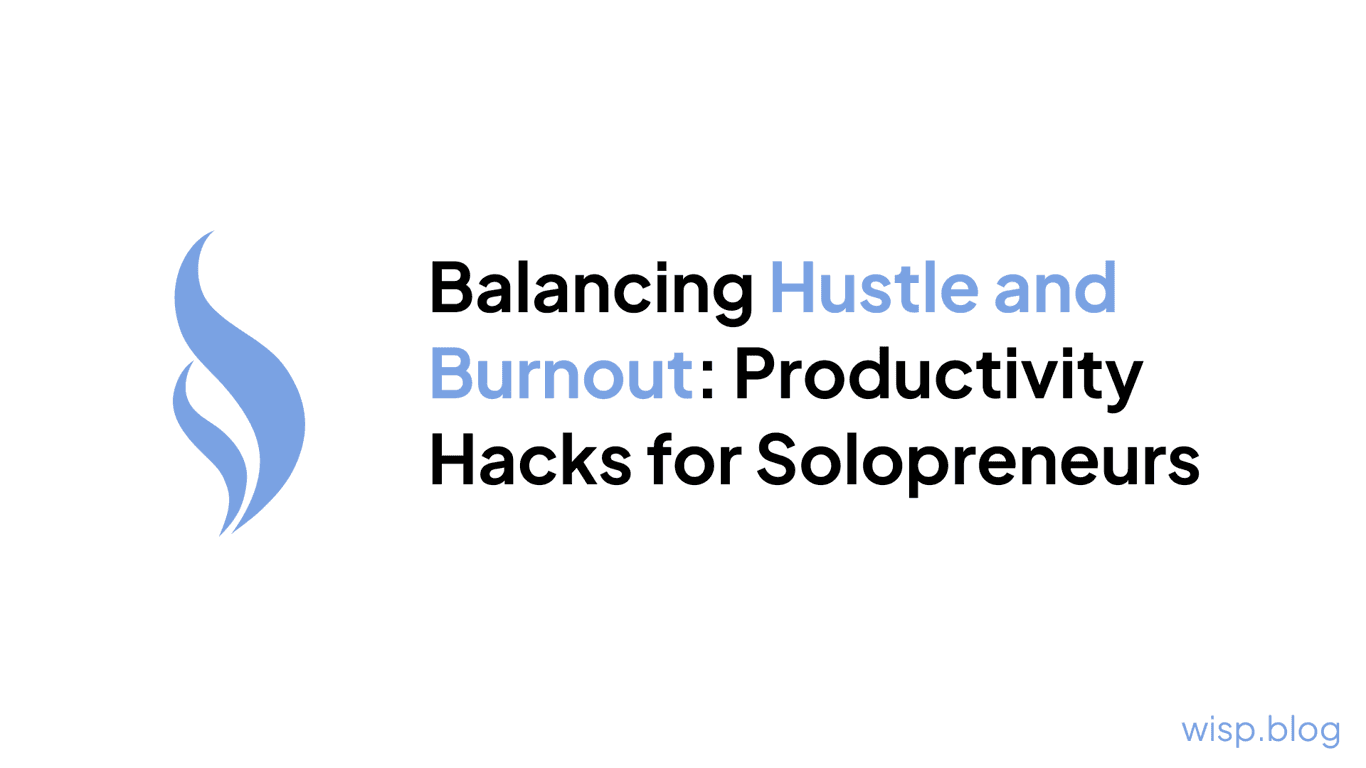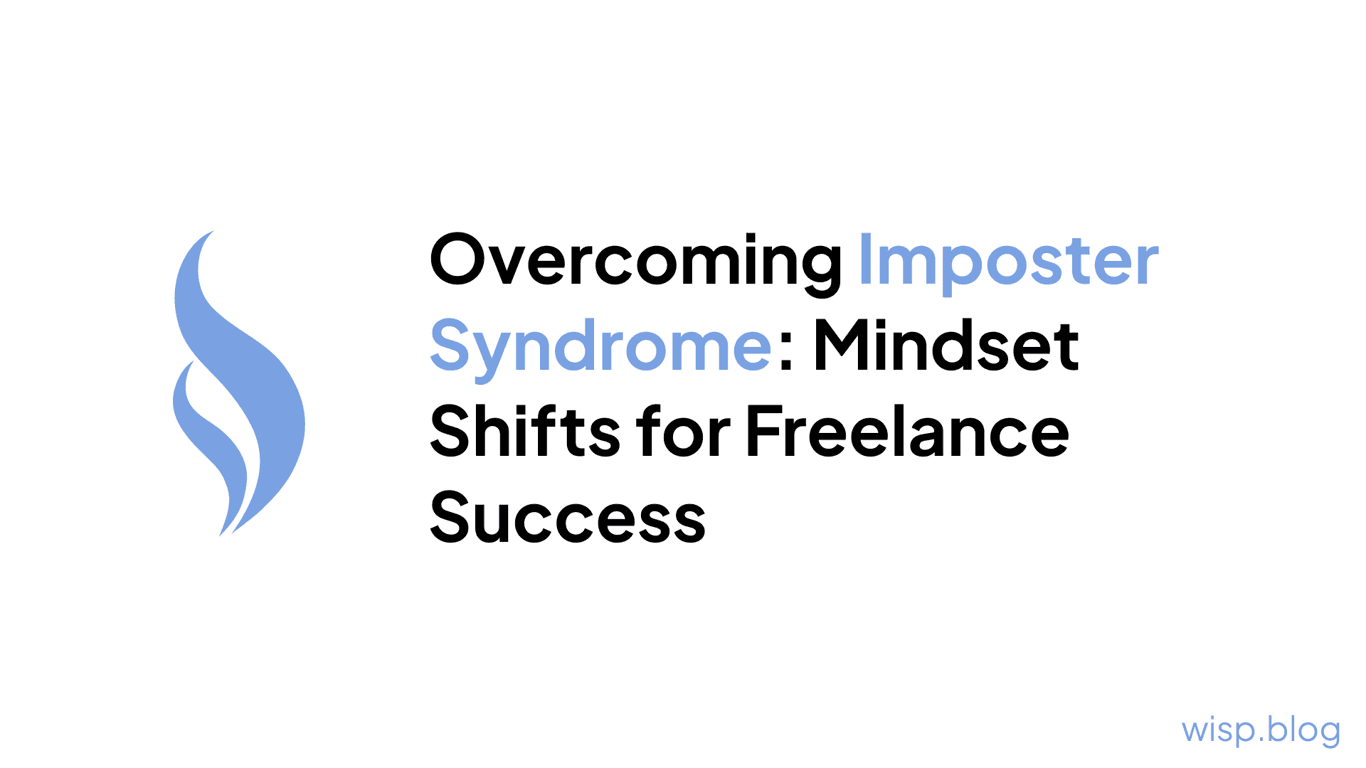
You're a founder pouring your heart and soul into your startup. You work 18-hour days, sleep at the office, and haven't taken a real vacation in years. You're living the hustle culture dream, right? But you're also constantly stressed, your relationships are suffering, and you can't remember the last time you felt truly happy or fulfilled. The glorification of hustle culture has led many founders down a path of burnout and misery.
The startup world is obsessed with hustle culture - the idea that you have to work yourself to the bone, sacrifice everything, and grind relentlessly to build a successful company. It's become a badge of honor to brag about how little you sleep, how many hours you work, and how you've forgone any semblance of work-life balance.
But at what cost? Study after study shows the diminishing returns of overwork. Beyond a certain point, those extra hours in the office don't translate to higher productivity or better results. You become less creative, make more mistakes, and struggle to think strategically. Not to mention the toll it takes on your physical and mental health.
What if I told you that buying into hustle culture is actually sabotaging your startup's chances of success? That taking time to recharge, nurturing your relationships, and finding balance in your life could be the key to unlocking your full potential as a founder? The most successful entrepreneurs understand that hustle is a sprint, not a marathon. They prioritize sustainable habits that allow them to operate at peak performance for the long haul.
1. Set Boundaries and Unplug Regularly
Establish set work hours and stick to them rigidly. Block them off as unavailable time in your calendar and set automatic email/Slack responders. When you're off the clock, be fully present - no emails, no messaging, no working. Use this time to recharge through hobbies, exercise, quality time with loved ones, etc. You'll return to work refreshed and able to operate at peak productivity.
Common Pitfall: Thinking you're irreplaceable and need to be available 24/7. Truth is, very few situations actually require this.
Pro Tip: Set a schedule that works for your body's natural rhythms. If you're a morning person, shift your workday earlier. If you're a night owl, work later into the evenings. Just be sure to protect your off-hours.
2. Prioritize Your Health
You can't build a world-class company if you're running on fumes. Prioritize getting 7-9 hours of sleep each night, eating nutritious foods like lean proteins, veggies, and healthy fats, staying hydrated with water, and getting regular exercise like walking, running, or lifting weights. Your energy levels, focus, creativity, and decision-making will all improve dramatically.
Common Pitfall: Thinking you can just power through and catch up on sleep/health later. This debt will catch up with you.
Pro Tip: Schedule your workouts and meal preps like meetings - put them in your calendar and treat them as immovable commitments. Hire a nutritionist or personal trainer if needed.
3. Outsource and Automate
Stop trying to do everything yourself and invest in tools and services that can handle tedious tasks. Hire virtual assistants to handle scheduling, travel planning, expenses, and other admin work. Leverage automation software like Zapier to streamline workflows and processes. Outsource low-leverage activities like bookkeeping, IT support, and customer service to freelancers or agencies. This frees you up to focus solely on the high-impact work only you can do.
Common Pitfall: Hesitating to spend money on outsourcing due to startup budget constraints. But your time is literally your most valuable resource.
Pro Tip: Calculate your hourly rate based on your desired annual salary. Then invest in any tool or service that costs less than your hourly rate to execute the task.
4. Build Redundancy Into Your Team
Cross-train team members on each other's roles and document all processes in a central wiki or knowledge base. That way if someone needs to take time off, the company can still operate smoothly. This prevents you from becoming a single point of failure and allows you to step away guilt-free.
Common Pitfall: Playing the "only I can do it right" game and refusing to delegate fully.
Pro Tip: Hire people you fully trust, then actually trust them. Give them the training, tools, and autonomy to fully own their roles.
5. Schedule Rejuvenation Time
Block off periods on your calendar for activities that refuel your passion - reading, taking a class, getting out in nature, meditating, or just daydreaming. Protecting this creative whitespace prevents burnout and keeps your entrepreneurial spark alive. During this time, completely disconnect from work and recharge your mind.
Common Pitfall: Skipping your rejuvenation periods when deadlines loom, telling yourself you'll make it up later. You never will.
Pro Tip: Schedule rejuvenation time as recurring calendar blocks that get slotted first before anything else. Treat them as inviolable personal commitments.
6. Take Legit Vacations
Speaking of recharging, you need to take real, extended vacations away from work at least 1-2 times per year. Completely unplug - no emails, no Slacking, no calls. Give your mind and body the chance to fully reset from the grind of startup life. You'll return re-energized and with a fresh perspective.
Common Pitfall: Thinking you can't afford to take time off or that the business will fall apart without you. Neither is true.
Pro Tip: Plan vacations at least 6 months in advance and communicate it to your team. This allows you to prepare them to fully handle operations while you're away.
7. Leverage Time Blocking
Carefully audit how you're spending your time each week. Identify your most productive periods and block off those times for your highest-leverage activities like product development, strategic planning, etc. Schedule lower-leverage tasks like meetings, emails, etc during your less productive periods. This ensures you're operating at peak efficiency.
Common Pitfall: Letting endless meetings and calls take over your calendar and best working hours.
Pro Tip: Establish office hours for things like meetings and calls, and protect the other portions of your day. You can also try techniques like batching emails/messages.
Hustle culture is pervasive in the startup world, but it's also deeply flawed and destructive. The most successful founders understand that balance, not burnout, is what unlocks peak performance. By setting boundaries, prioritizing health and relationships, and intentionally recharging, you'll be able to show up as your best self day after day. That's when the real magic happens.


